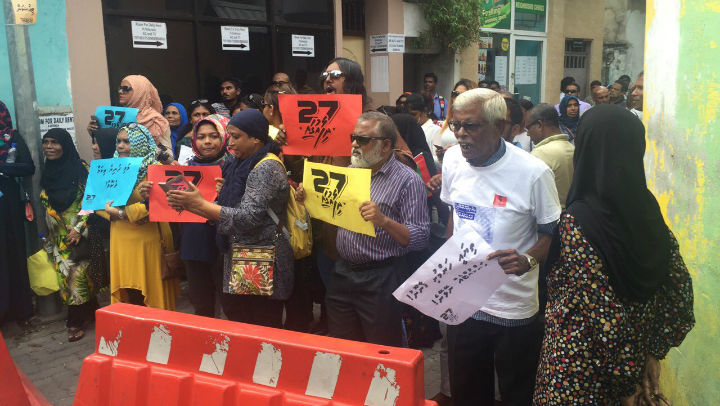Lawsuit challenges constitutionality of Defamation Act
A law firm mounted Sunday a challenge to President Abdulla Yameen’s defamation law, asking the high court to strike down key provisions on the grounds that it contravened the constitution.

04 Sep 2016, 09:00
A law firm mounted Sunday a challenge to President Abdulla Yameen’s defamation law, asking the high court to strike down key provisions on the grounds that it contravened the constitution.
Premier Chambers is asking the appellate court to overturn 24 provisions of the Defamation and Freedom of Expression Act, widely condemned as a setback for free speech in the Maldives.
The firm asked the court to grant a stay order on the controversial law’s enforcement. It contravenes some 22 constitutional provisions, including those guaranteeing freedom speech and freedom of the press, the firm contended.
Maumoon Hameed, nephew to Yameen and a partner at Premium Chambers, has previously called the law “a weapon of mass destruction against fundamental rights.”
Become a member
Get full access to our archive and personalise your experience.
Already a member?
Discussion
No comments yet. Be the first to share your thoughts!
No comments yet. Be the first to join the conversation!
Join the Conversation
Sign in to share your thoughts under an alias and take part in the discussion. Independent journalism thrives on open, respectful debate — your voice matters.




